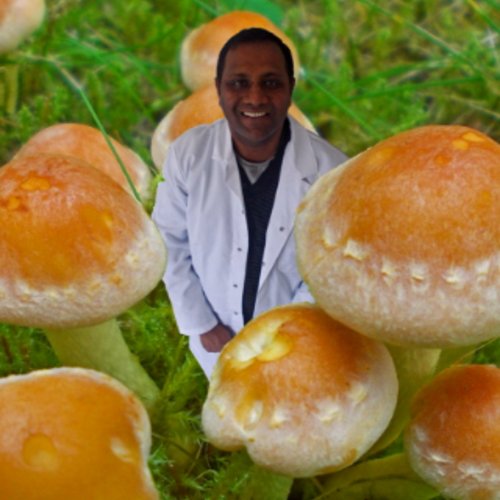We recently caught up with David Kothamasi who has just joined the School of Law as a Marie Curie Research Fellow and is currently working on a project on Microbial Commons. We found out more about David's research interests and what trends he sees influencing the field he is working in...
Tell us a little bit about your career so far...
I am a biologist and a legal scholar. I began my career as a Doctoral research scholar working in the biodiversity rich tropical rain forests of Great Nicobar Island (India) in the Indian Ocean. I investigated how ecosystem structure and function is influenced by the interactions between mycorrhizas and plants. After completing my Ph.D., I joined the UNDP-GEF program in India as an Environmental Consultant. As a GEF-Environment Consultant I learnt to appreciate the important link between scientific knowledge and policy making. After a short tenure with the UNDP-GEF, I took up a full time faculty position at Department of Environmental Studies in the University of Delhi.
What has been the most memorable moment of your career so far?
Well there have been more than one but if I have to choose, it would be the opportunity I got as a BELSPO fellow at the Belgian Nuclear Research Center (SCK·CEN) to research on how resilient microorganisms are to severe environmental stresses like nuclear radiation.
What sparked your interest in your area of expertise?
Working on the ecological role of microorganisms, I developed an appreciation of the immense economic value and consequent vulnerability of microorganisms to biopiracy. I have been studying how lacuna in international legal instruments can serve as barriers to indigenous communities and local farmers gaining economic benefits accruing from microorganisms.
What is your role within the school?
I am a Marie Curie Fellow (Horizon 2020) at the Strathclyde Centre for Environmental Law and Governance (SCELG), University of Strathclyde, Glasgow. I will be working with Dr. Saskia Vermeylen on a project on Microbial Commons.
What current trends do you see influencing your field?
Scientists across the world are beginning to recognise the increasing barriers that patent regimes could have on microbiological research. There will be increased attention on existing legal regimes concerning Intellectual property of microbial resources and the need for developing a commons regime on the lines of Farmer’s rights developed for plant varieties.
Tell us about any research you are currently involved in...
I am currently researching on ecological importance of microbial resources and the barriers associated to a commons regime for microbial resources.
What initially attracted you to the University of Strathclyde?
Broadly, the research of SCELG on environmental law and governance but specifically Saskia’s work on rights of indigenous communities.
Find out more about David's research here:
Agricultural microbial resources: private property or global commons?
Symbiotic soil fungi enhance ecosystem resilience to climate change
